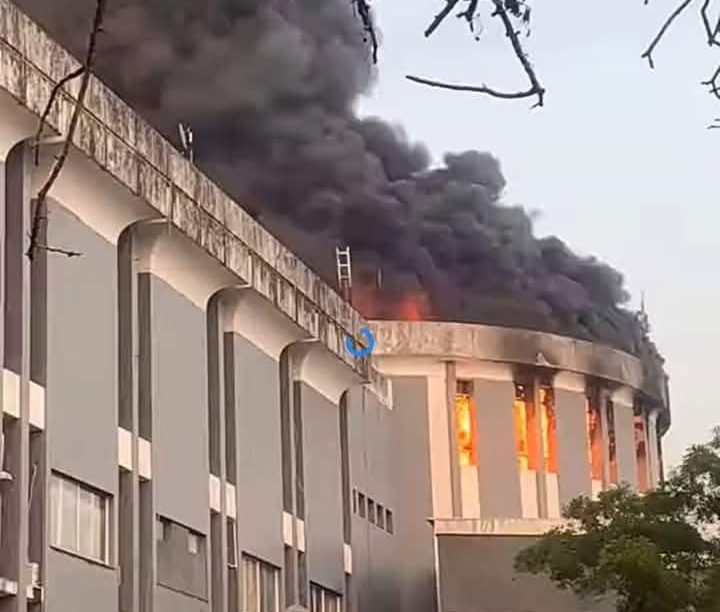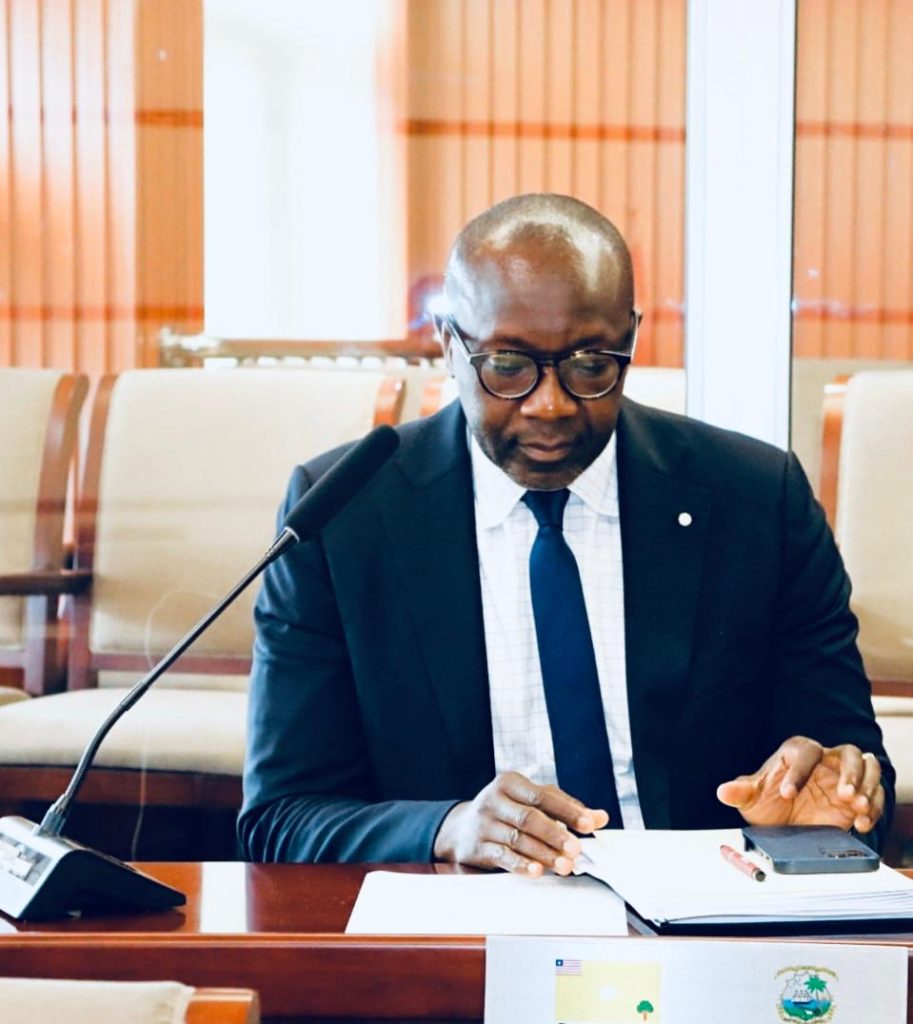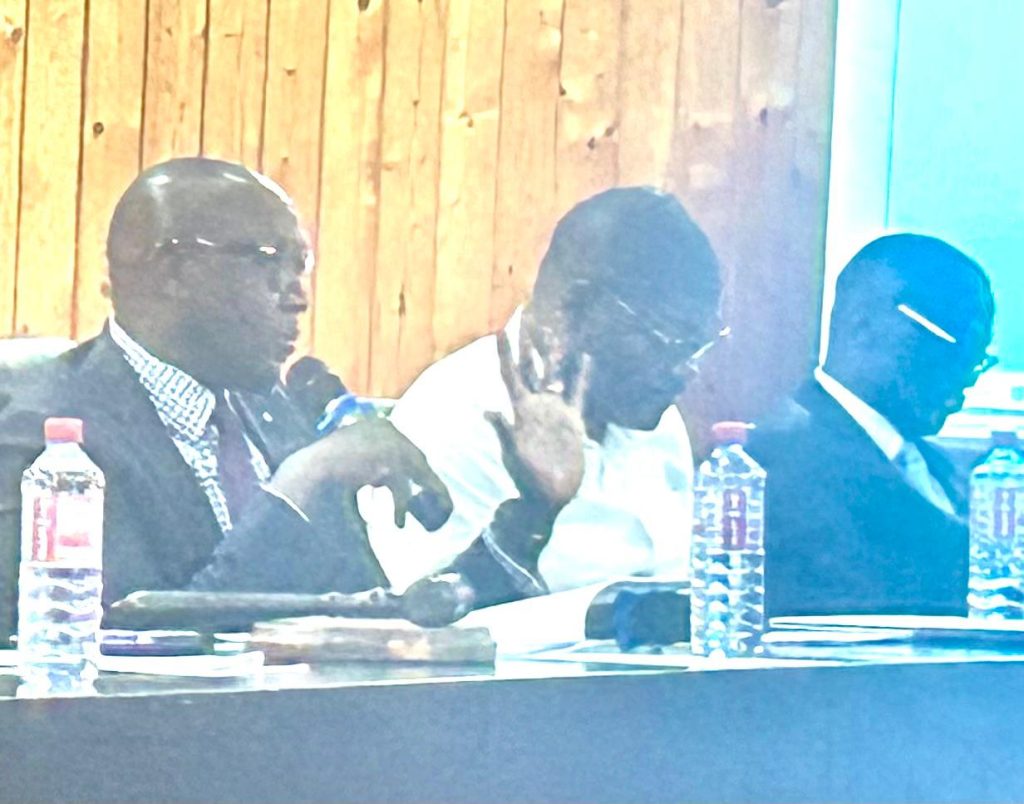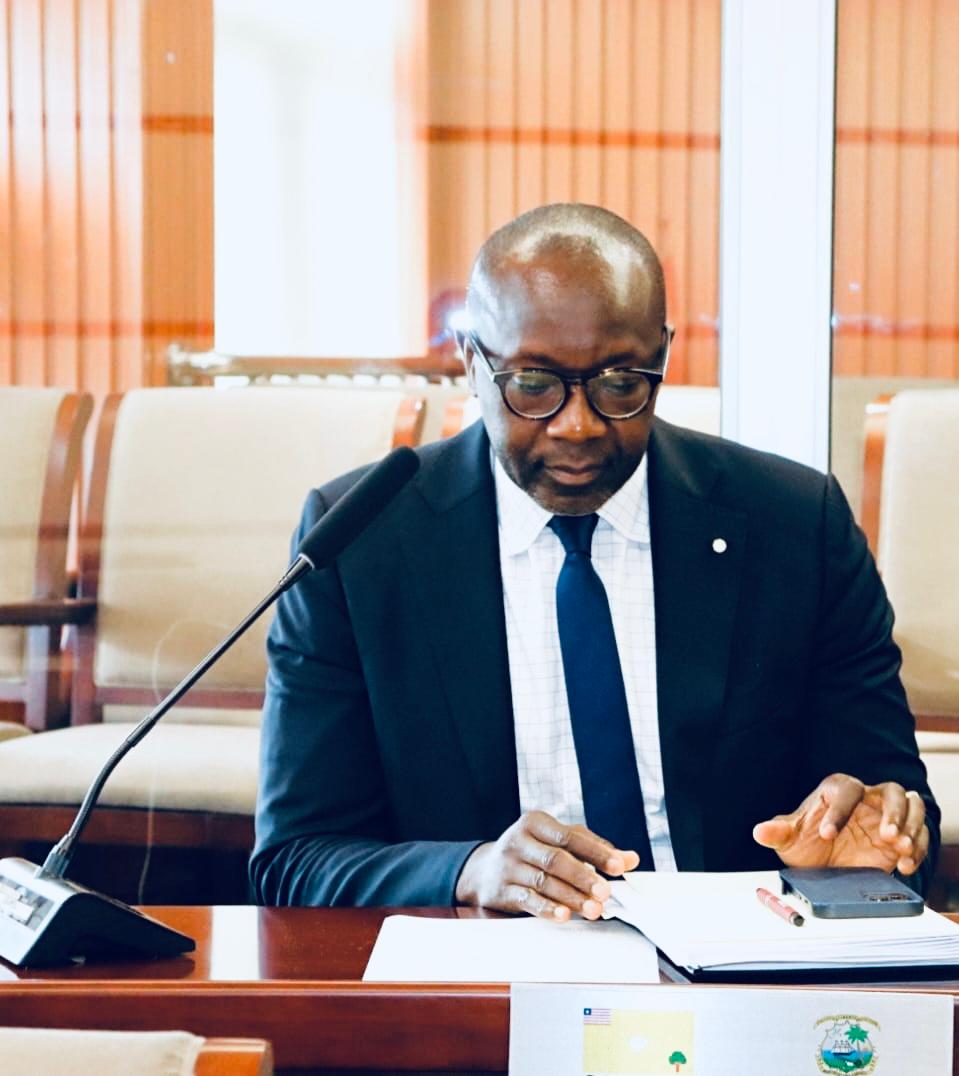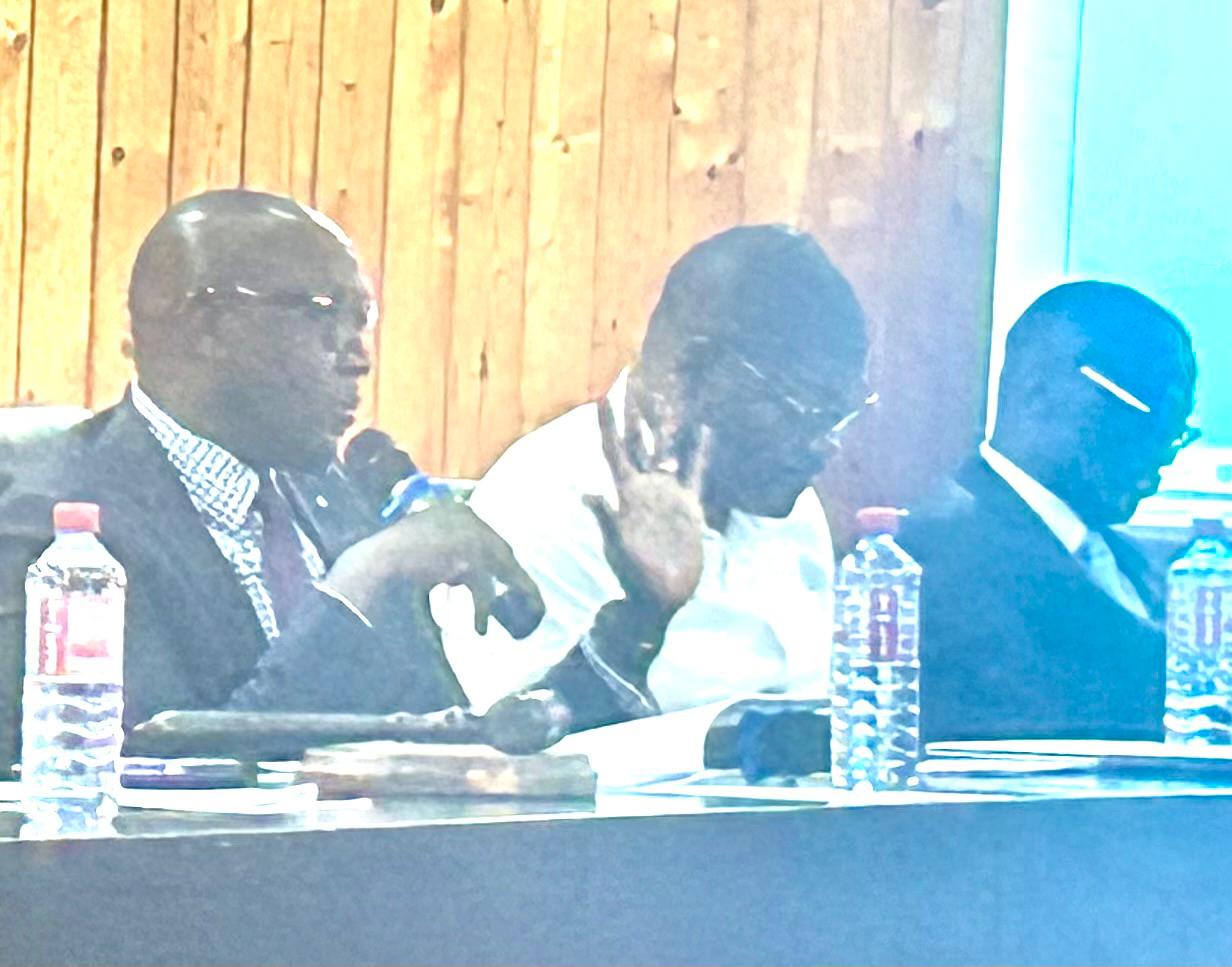In 2024, around 50% of our planet’s population will go to the polls. As a Liberian, I will be closely following upcoming elections in Africa, and particularly those in Ghana, which for the past 30 years has built up its democratic institutions through free and fair democratic contests, and peaceful and orderly transfers of power.
Liberia held its general elections in 2023. The young democracy of the West African country withstood the challenge of former president George Weah’s populism. Weah had sought a second term, but Liberian voters showed both courage and maturity in rejecting his chaotic leadership. Instead, they chose the path traced by the former president and Nobel Peace laureate, Ellen Johnson Sirleaf.
For many African nations, this path of universal suffrage, which also includes stable and democratically-accountable institutions has been a ‘road less travelled’. As a consequence, there is not only an assumption that Africans have little to contribute in conversations on democracy, but that the democratic electoral system is somehow unsuited to countries on the continent.
READ MORE Coup epidemic: Democracy has not failed Africa, says Thomas-Greenfield
My political experiences, however, are different. I have contributed to both of Sirleaf’s presidential campaigns, managing the runoff of her re-election campaign. She became the first African woman head of state, remaining in post for two full terms. Last year, I was sent to the Liberian Senate by the constituents of my home county, following which I coordinated the presidential election runoff campaign of Joseph Boakai. He went on to become the 26th president of Liberia.
I was privileged to have had a close look at the workings of democracy in West Africa both as an appointed and elected official, and as a campaigner. My conclusions are plain and simple: given the opportunity, democracy works in West Africa, just as it works elsewhere. The recent presidential election in Senegal and the peaceful and beautiful transfer of power, are shining examples of democracy at work in our sub-region. And it could just be that given local traditions, the rich tapestry of African beliefs and ethnicities, this system of government is particularly suitable to modern Africa. Those who claim otherwise, say so not on the basis of evidence, but on the basis of their own narrow interests.
Democracy under the Palava Hut
My first experience of democracy, of free and fair elections, was from my home village of Bassa Camp, deep in the great Guinean Rainforest. My father was the village chief, repeatedly elected by the villagers through a direct one man, one vote system. On election day, the men would gather under the Palava Hut, the village assembly building. This roofed yet wall-less building was the place where villagers met every week to discuss questions of importance to them.
But election day was different. The candidates would set out their pitches to the assembly. There would be a discussion. Once the discussion was over, a vote got underway, and this is how it looked: the villagers stood and lined up in the column of the candidate they supported. You could immediately see which candidate got the most votes by the number of people in his file. If the lengths of the columns were obviously unequal, the matter would be immediately decided. Otherwise, there was a headcount.
I am wary of those who issue warnings against ‘transplanting democracy’, or argue that some cultures are not ‘predisposed’ towards elections
At the time Bassa Camp in the Gbarpolu County of Liberia was a remote and inaccessible diamond mining settlement of a few hundred people. These were the 1970s. I had not seen a car until I was seven years old. We kept abreast of news by battery-powered radios. There was one electric generator attached to it and a few electric bulbs. Until the first road was cleared (a work project decided in the Palava Hut, and led by my father), there were only forest trails leading to the village, shaded paths between the trees leading to other similarly isolated settlements. A quick route in or out was a small landing strip, on which a small-propeller Cessna, piloted by an enterprising Spaniard, would land once a week. The strip was another communal project.
READ MORE Africa in 2023: Debt, despondency and democracy
Africa Insights
Wake up to the essential with the Editor’s picks. Sign up Also receive offers from The Africa ReportAlso receive offers from The Africa Report’s partners
In that isolation, far from the reach of the central government in Monrovia, these miners — people often illiterate and leading precarious lives of hard work and constant want — hit upon a system of self-government in so many ways similar to other examples of democracy. All the main elements were there: assemblies, discussions, elections, grievance procedures and communal initiatives. Like the pioneers of the Old West, Swiss villagers, or denizens of ancient Athens, they too found a way to govern themselves.
And this is not incidental. The idea of a democracy, of ‘one person, one vote’ is something that every human being can understand. Anyone can join the democracy column and given half the opportunity, people do. I am wary of those who issue warnings against ‘transplanting democracy’, or argue that some cultures are not ‘predisposed’ towards elections. Behind these arguments, you often find illiberal interests. Just as anyone can understand the basic principles of suffrage, so everyone welcomes a say on how they are governed, whether locally or nationally.
Liberia a ‘special case’
I have already mentioned two local projects agreed on by the assembly and carried out by the villagers. The first road connecting Bassa Camp with the county capital was cleared by contributions of voluntary labour. Down that road came the first car I had ever seen. It received a celebratory welcome. Not only were we now connected to other towns in Liberia, but there was a sense of self-accomplishment. Our own ‘democratic experiment’ had worked. It was the same with the landing strip. My father, as the elected chief, organised volunteers to maintain the neat grass runway.
What other issues were discussed at the assembly and what kind of powers were vested in the village chief? These are two interesting questions as they trace a kind of boundary of local democracy in Africa, and point towards an inherent tension between local and national politics that is not inherently African by nature. In the case of Liberia, there is an added layer of complexity, presented by the nation’s history.
In many ways, Liberia is a ‘special case’. It is Africa’s first republic: it was never a colony. In the 19th century, the land that was to become the country of Liberia was settled by a group of freed slaves from the United States of America. This group and their descendants were to rule the country for almost 150 years. The official language of Liberia was English, and its political institutions modelled on those in America (the constitution, the presidency, the senate).
READ MORE Niger: ECOWAS failure to respect its democracy rules boosted putschists
Hence, those political institutions, animated by the traditions of American democracy (the preamble to Liberia’s Constitution of 1847 says “the people of the Republic of Liberia then are of right, and in fact, a free, sovereign and independent State”), left some or many local governance functions to local people. But, to be fair, this was also to a certain extent out of necessity, as the country’s interior was thickly forested and the road and communication networks poor. The local citizens’ and villagers’ assemblies, in addition to coordinating communal work-projects, decided on issues such as sanitation, education, local celebrations and festivals, while settling disputes and mediating in cases of civil litigation.
The authority of the local chief, the elected official, stemmed from his moral qualities, as well as his personal drive and energy. He could not call on the police, as in these remote locations there weren’t any, nor could he enforce his will. He had to be a good communicator, a persuader and a compromiser, rather than a fighter and arguer. Instead of focusing on getting his own way, he had to be a good listener. All these are valuable traits in democratic contests and I recognise many of them in my father. A village chief had to be able to get people behind him, both literally and figuratively.
I believe that the give-and-take of local debate, the art of building consensus and getting things done was ideally suited to the ethnic make-up of Liberia with its 16 tribes, two main religions and a wealth of traditions and beliefs. Rather than exploit differences, here was a system that in a village microcosm of its own, uncovered common interests. It was a grassroots approach to decision making, which needed no coercion.
Coup, civil war and Africa’s first woman president
Unfortunately, the bloody Liberian coup d’état of 1980 put an end to the home-grown tradition of local democracy. A military representative was dispatched to the village, and he appointed community leaders. Under threats of violence, my father withdrew and no longer ran for public service. In my mind, this episode illustrates an assumption I often encounter when discussing African politics. It is not that the character of the place or the people changed. Or that the people defaulted to some kind of illiberal behaviour. Rather, a system that kept a community in political equilibrium was dismantled by outside forces.
The coup d’état was the harbinger of the Liberian Civil War. Fought in two stages from 1989 to 2003, the conflict uprooted most of the country’s population, and claimed the lives of around 200,000 Liberians, including my father. I ended up in the United States, via Guinea. I followed news from home through the new medium of the internet, and in 2003 found that the second phase of the civil war had ended. There was talk of an election and of a candidate I had known while I was still living in Liberia. This was Ellen Sirleaf Johnson, a finance minister in President William Tolbert’s administration, up until the coup of 1980.
Sirleaf miraculously survived the initial wave of repression in the early 1980s and became a prominent opposition figure.
Sirleaf miraculously survived the initial wave of repression in the early 1980s and became a prominent opposition figure. With peace restored, she was campaigning to become Liberia’s 24th president. I approached her while she was visiting the US in 2004 and proposed I should build her activist base in America, amongst the Liberian expats. I had started following American political campaigns and applied some of what I had thought worked. First, a catchy campaign title that works well as an acronym: Liberians for Ellen or LIFE. Secondly, an outreach programme of town hall meetings, e-mailed newsletters and direct contacts with the diaspora, with the campaign website as a central information hub. And finally, a fundraising drive that would position Sirleaf as the most serious contender for the presidency.
The campaign worked. Sirleaf addressed thousands of Liberians in the United States directly at political events and fundraisers. With the support of the expat community her march towards the presidency shifted a gear. Arguably, Liberians in America are politically savvy and predisposed towards responding to campaigning cues. They understand and endorse the methods of democratic contests.
READ MORE Before criticising democracy abroad, Britain should take a look at itself
Two months ahead of the elections I was invited to work on the campaign. Especially as election day loomed and Sirleaf’s ticket was in the doldrums. There was a sense that we were heading towards a defeat, but our real problem was that we were flying blind. We simply did not know how Sirleaf was ranking against the other candidates, nor could we work through the various scenarios, such as what would happen if there was a second round and Johnson was in it.
I decided to run what I believe was the first modern political poll in West African politics. It told us what we should focus on, it profiled the voters who were resisting Sirleaf and offered a pathway to winning them over. After the first round I ran the poll again and it gave me a clear indication that despite receiving less votes than her opponent George Weah, Sirleaf was now a clear favourite in the runoff. On the night of the second round, I was perhaps the only calm person in Sirleaf’s fretful election headquarters. And when victory came I was delighted, but it did not surprise me. The vote tallies were exactly as expected from the polling and Sirleaf was president.
Boakai, election data and me
Fast-forward to 2023: Upon winning my senate race in Gbarpolu — 19 years after Sirleaf won the race to become Africa’s first female president — and before my public endorsement of opposition candidate Joseph Boakai, I spent two weeks analysing the data from the first round of the election to establish a winning path for Boakai and his Unity Party Alliance, which I shared with the candidate and the campaign team. With my 51% projection for him, Boakai asked me to coordinate the campaign in the runoff. Another critical component I added to the strategy was security to protect poll watchers and prevent double voting.
My contribution to the opposition’s victory came to the forefront when I made an unprecedented move to begin announcing the results ahead of the National Election Commission (NEC). This bold action did not only showcase my confidence in the accuracy of our data but also highlighted my commitment to transparency in the democratic process.
My nightly announcement ahead of the NEC became a turning point in the election, setting a new standard for openness and accountability.Even the NEC officials were unable to challenge our results.
Leadership played a pivotal role in running an effective election situation room, where my team and I worked tirelessly to protect the Liberian people’s votes. The ‘war room’ not only ensured the security of the electoral system but also swiftly responded to any potential threats or irregularities.


